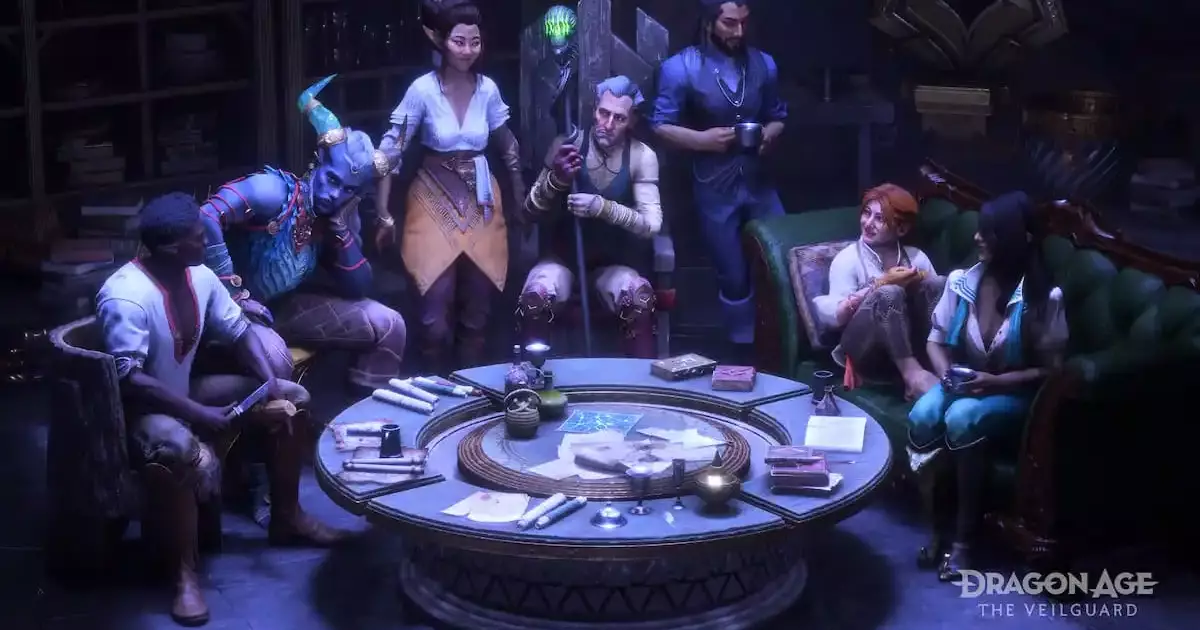The allure of fantasy narratives lies not merely in their magical elements, but rather in their intricate and often convoluted storytelling. BioWare’s Dragon Age series embodies this notion, crafting a world steeped in rich lore that dances between conflicting beliefs and stories. Unlike many role-playing games that offer linear explanations through exhaustive codex entries, Dragon Age thrives on ambiguity and multifaceted perspectives, making Thedas feel alive and ever-evolving.
At the heart of Thedas lies a cacophony of voices, each belonging to diverse factions that interpret the world around them in radically different ways. Humans hold beliefs that may starkly contrast with those of the elves, who in turn have entirely different convictions from the qunari. This divergence in understanding forms the backbone of the series’ narrative conflicts. Varied factions not only enrich the lore but also present players with deep moral and ethical dilemmas that challenge one’s perception of right and wrong.
Former lead writer David Gaider has described this complex interplay as a spider’s web, intricately woven from countless stories and belief systems. The weight of lore becomes a significant catalyst for character development, and players often find themselves grappling with questions of allegiance and morality in a world where truth is subjective. Such storytelling reflects the human condition; we are shaped by the narratives we are told and the lines we choose to believe.
Gaider hints at an overarching “uber-plot” that may one day bring cohesion to the myriad threads woven throughout Thedas. In an interview with Eurogamer, he expressed hope that BioWare would draw upon his original narrative concepts to eventually resolve the conflicts and mysteries that permeate the series. However, he also acknowledges the importance of doubt and uncertainty in storytelling. As players traverse the vast landscape of Thedas, they must sift through layers of history, seeking out truths that often remain elusive.
“To get the truth, you kind of have to pick between the lines,” Gaider states, underscoring the playfulness inherent in the unfolding drama of Thedas. The further the history delves into the past, the more intentionally distorted and layered these narratives become. This convoluted history requires players to engage deeply with the material, fostering personal interpretations that reflect their values and beliefs.
The recent release of Dragon Age: The Veilguard offers an intriguing opportunity for fans to explore these themes further. The introduction of ancient Elven gods who have firsthand knowledge of Thedas’s beginnings poses a potential turning point in understanding the lore surrounding the world and its mysteries. Players are presented with the tantalizing possibility of uncovering truths about pivotal elements, like the enigmatic Black City, believed to be the source of creation itself.
Nevertheless, Gaider expresses a mix of excitement and apprehension regarding how contemporary writers choose to handle these profound truths. While the revelation of answers could reinforce the narrative’s appeal, there remains a risk that definitive statements might undermine the essence of what makes Dragon Age captivating; the constant interplay of mystery and personal interpretation.
In an ideal fantasy setting, competing narratives should flourish, each claiming legitimacy in a worldview defined by treaties of perception rather than concrete facts. This inherent tension between uncertainty and illumination invites players to walk a complex path, navigating a world where truth is subjective and influenced by the beholder’s perspective. The fragility of truth in Thedas reflects our own reality, where different narratives coexist, each vying for recognition in the broader story of human experience.
The desire for definitive answers can often lead narratives astray, diminishing the thrill of exploration inherent in these fantastical realms. While clarity and resolution are comforting, they can also extinguish the flames of imagination and speculation. It is the ambiguity that often makes stories richer and more engaging—a reminder that life itself is full of competing narratives, truths shaded by experience and interpretation.
Dragon Age stands as a testament to the richness of storytelling, challenging players to engage with a world steeped in conflicting beliefs and intrigue. While the call for resolution persists, it is the intricate dance of ambiguity that makes Thedas a vibrant narrative tapestry. As we venture into titles like The Veilguard, it remains to be seen whether these tantalizing threads will ultimately lead us to clarity or continue to weave a complex web of enchanting uncertainty.


Leave a Reply